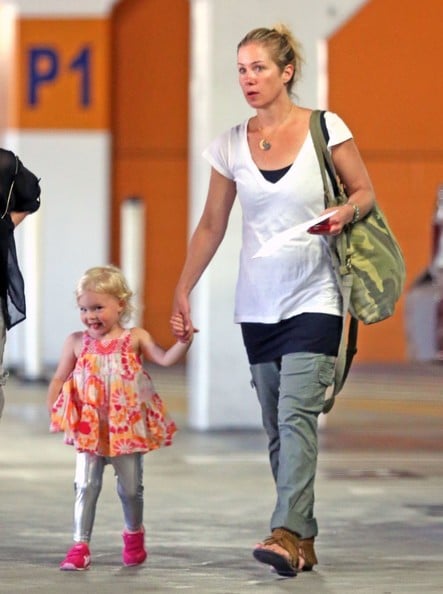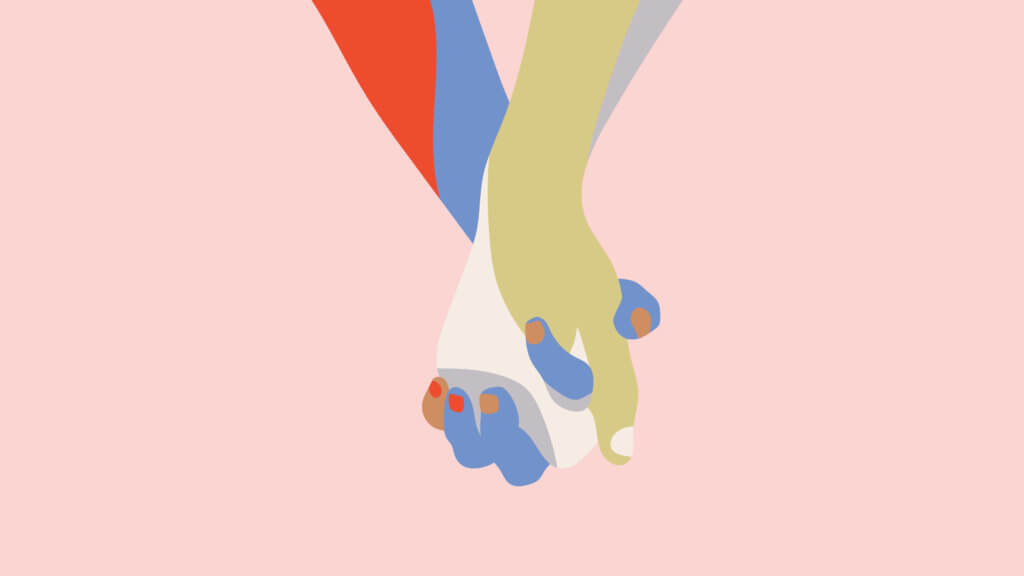Grieving a Loved One's Healthier Self
- Special occasions like Mother’s Day, understandably, can be extremely challenging for many without their mom — whether due to a loss or complicated family dynamic. But it is also important to empathize with those suffering from watching their loved one on the mental and/or physical decline from diseases like cancer, Alzheimer’s or another chronic illness: this is called “anticipatory grief.”
- Actress Christina Applegate, 53, who was diagnosed with multiple sclerosis (MS) in 2021, often discloses the varying symptoms she goes through on a daily basis, and many times has difficulty getting out of bed. For many families, this can be devastating for a child to see as they mourn the healthier version of their loved one that they are used to spending time with.
- Lane Pease Hendricks, MS, NCC, Director of Education and Innovative Programs at Kate’s Club, discusses anticipatory grief with SurvivorNet. “There may be anger, sadness, anxiety, frustration, hopelessness, or a real feeling of helplessness that you can’t change the outcome.”
- As SurvivorNet extensively highlights, Hendricks notes the importance in not losing sight of yourself while taking care of a loved one. “Make sure that you’re doing good self-care, whether that’s spending time with supportive friends or getting outside.”
- Expressing feelings and emotions is key in order to prioritize your mental health, and it’s critical that caregivers do this too. Some common emotions caregivers may experience could include stress, fatigue, and burnout. So, in order to get these feelings off your chest, it’s worth finding another individual to talk openly to and vent to when needed. Sign up for SurvivorNet’s caregivers guide if you need help navigating through a challenging time.
Actress Christina Applegate, 53, who was diagnosed with multiple sclerosis (MS) in 2021, often discloses the varying symptoms she goes through on a daily basis, and many times has difficulty getting out of bed. And when the body is affected physically, the emotional weight of what is happening follows, and this can be devastating for a child to see as they mourn the healthier version of their loved one that they are used to spending time with.
Read More
RELATED: Bravely Battling MS, Actress Christina Applegate Says It Can Be Frightening to Take a Shower
“It’s been really hard watching my mom going from this person who could get up and dance… hours at a time… and then in 2021 when she got diagnosed… it was hard seeing my mom lose a lot of the abilities she used to have in my childhood,” Sadie, then 13, said of her mom, who American families grew up watching as Kelly Bundy in the early ’90s on Married… with Children, (which averaged 20 million viewers each week).

“It’s just really hard seeing her go through this,” she reiterated, going on to share how her mom, who is also a breast cancer survivor, will accompany her to concerts in a wheelchair (though they laughed together about Sadie “running her into walls”).
Just like her mom experiences, some days are more challenging than others, and though it has become their new normal, it has only made their bond stronger.
Understanding ‘Anticipatory Grief’
In an interview with SurvivorNet, Lane Pease Hendricks, MS, NCC, Director of Education and Innovative Programs at Kate’s Club discussed the complexity of grieving a person while they are still living.
“We call it anticipatory grief,” Hendricks tells SurvivorNet. “Many times you’ll see this when a person has dementia, cancer or other chronic conditions. We’ll have feelings that we’ve lost the person already.”
“We may also grieve because they can’t do the things they used to do, or you start grieving the life in the future you thought you would have with the person,” she explains.

“Reactions to anticipatory grief could be much like grief after a person dies. There may be anger, sadness, anxiety, frustration, hopelessness, or a real feeling of helplessness that you can’t change the outcome.”
“Additionally, so many times in relationships, we spend a lot of time talking about and planning for the future, and you may not know what to do/say with that person anymore now that you don’t have that talking point,” Hendricks adds.
RELATED: Communicating With a Loved One Fighting Cancer — What to Say, What NOT to Say
Hendricks goes on to share suggestions on how to spend meaningful time with the person while they are still able, “collect memories by doing activities with them when they’re up for it, even if it’s putting a puzzle together or watching a TV show they enjoy,” she says. “Having those small moments really helps sometimes.”
Another important reminder? “Just take care of yourself. Make sure that you’re doing good self-care, whether that’s spending time with supportive friends or getting outside.”
Caregivers Can’t Provide Optimal Care for Their Loved Ones with Cancer If They Don’t Care for Themselves
Hendricks also notes how “journaling is helpful because you can track your journey… and the progress you make through your grief journey. Art and expressive activities could [also] be helpful.”
‘Disenfranchised Grief’
Hendricks goes further to point out how anticipatory grief can also “turn into disenfranchised grief, which is grief that may not be socially accepted, recognized or validated.”
“Anticipatory grief might not fit into people’s understanding of grief that comes after a death,” she explains. “However, both before and after the death it is important to normalize talking about the many complex feelings that come with anticipatory grief and sharing it in a supportive community.”
“This is one of the foundational philosophies at Kate’s Club, which provides kids, teens, families and young adults with group-based and recreational programming after the death of a parent, sibling, caregiver or someone important to them.”
Self-Care for Caregivers
Caring for someone and watching them struggle with a disease like cancer or a debilitating mental or physical illness can take a severe physical and mental toll on the caregiver. It’s important for caregivers to prioritize their own needs while caring for others, and that’s why these tips can make a huge difference.
Express Your Emotions
As a caregiver, it can be easy to assume you need to always be the shoulder to cry on. However, that doesn’t mean you should bottle up your emotions. Expressing feelings and emotions is key in order to prioritize your mental health, and it’s critical that caregivers do this too. Some common emotions caregivers may experience could include stress, fatigue, and burnout. So, in order to get these feelings off your chest, it’s worth finding another individual to talk openly to and vent to when needed.
Find a Support Group
You’re probably familiar with support groups to help people through cancer, but there are also resources for caregivers and loved ones also impacted by the disease. Connecting with others who are going through similar experiences can be extremely beneficial during difficult times, as it proves they’re not alone during this journey. Furthermore, it allows the caregiver to speak openly about their experiences and be surrounded by others who can relate. If you’re not comfortable with the idea of a group setting, therapy can also be a great option as it allows an intimate one-on-one conversation.

Do Things You Enjoy
Being a caregiver can be extremely time consuming, and it’s easy to spend all of your time dedicated to the individual you’re helping. However, experts have said it’s key that caregivers still take some time out of their day to do activities they enjoy in order for them to prioritize their mental health. This can be anything that brings you joy, whether it’s doing a workout routine, watching a movie, going on a walk, or getting lunch with a friend. No matter what activity you choose, taking time for yourself can be a huge help in remaining positive. Meditation and breathing exercises can also be highly beneficial, giving your mind and body a relaxing reset.
A Guided Meditation for the SurvivorNet Community
Take Care of Yourself
In order to fully take care of someone, you need to feel your best. Feeling fatigued or stressed at times can lead to bigger issues that could impact you, and that’s why it’s so important to not only prioritize your mental health, but also your physical health as well. That’s why, if you start to feel the physical toll of being a caregiver, it’s so important to take some time to relax or even visit the doctor if things progress.
Sign up for SurvivorNet’s caregivers guide to help you navigate through this challenging time.
Learn more about SurvivorNet's rigorous medical review process.

